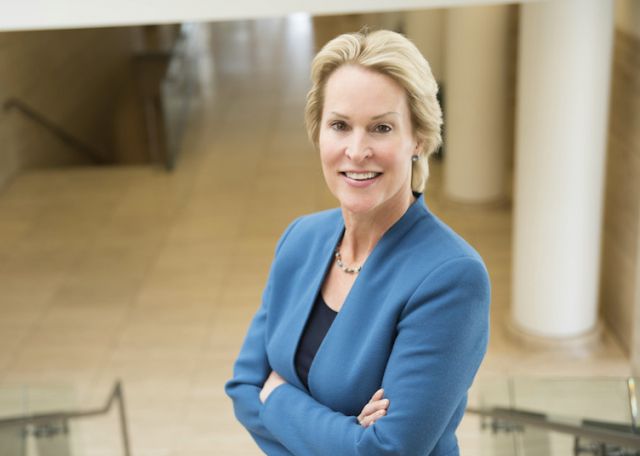ICB Project Leader Frances Arnold Wins the Nobel Prize in Chemistry

Frances H. Arnold, an ICB–Caltech project leader and biochemical engineer, won the 2018 Nobel Prize in Chemistry for her work in the directed evolution of enzymes. Inspired by the biological processes that drive natural selection, Arnold’s pioneering technique emulates natural selection by breeding proteins with desirable traits through the application of random mutagenesis and rapid mutant screening.
The ICB is proud to be associated with this work that has been conducted at the frontiers of chemistry, biology, and engineering. Since it’s inception in 2003, the ICB has provided continuous support for a small portion of Prof. Arnold’s Nobel-prize-winning efforts to harness the power of directed evolution.
Enzymes are molecules that catalyze chemical reactions, with most biological enzymes being proteins—the building blocks of life. Such enzymes can be optimized by changing their structure. Seeking better enzymes, Arnold attempted to rebuild them, which proved difficult given the massive variation in protein structure. Instead, she turned to nature’s way: evolution.
By mutating enzymes and selecting the best mutations for a set of parameters, she directed the evolution. In fact, this is how living beings evolved from simple unicellular organisms into the multitude of complex species we have today. However, nature can only select the best mutations out of what is available, which is often the result of millenia of random mutations. With Dr. Arnold’s work, not only are we able to select the best enzymes but we are able to direct the mutation in a certain direction, thereby decreasing inefficiency.
"Life—the biological world—is the greatest chemist, and evolution is her design process," says Arnold in an interview with Caltech. "I may not be the best chemist but I do appreciate evolution."
Her achievements have led to applications in pharmaceuticals, sustainable biofuels, and other environmentally friendly products. Many toxic chemicals used in industry have been replaced with enzymes created using her technique.
Arnold is the fifth woman to win a Nobel Prize in Chemistry. She shares this year’s nearly $1 million Nobel with George P. Smith, 77, and Gregory P. Winter, 67. Dr. Arnold received half of the prize and Dr. Smith and Dr. Winter shared the other half.
Born in Pittsburgh on July 25, 1956, Arnold received her undergraduate degree in mechanical and aerospace engineering from Princeton University in 1979 and her graduate degree in chemical engineering from the University of California, Berkeley in 1985. In 1987, she became a visiting associate at Caltech and was named assistant professor in 1987, associate professor in 1992, and professor in 1996. She was named the Dick and Barbara Dickinson professor of Chemical Engineering, Bioengineering and Biochemistry in 2000 and became the Linus Pauling professor in 2017. In 2013, she became the director of Caltech’s Donna and Benjamin M. Rosen Bioengineering Center. She is one of a small group of people and the first woman to be elected to all three branches of the National Academy—Sciences, Engineering and Medicine.
